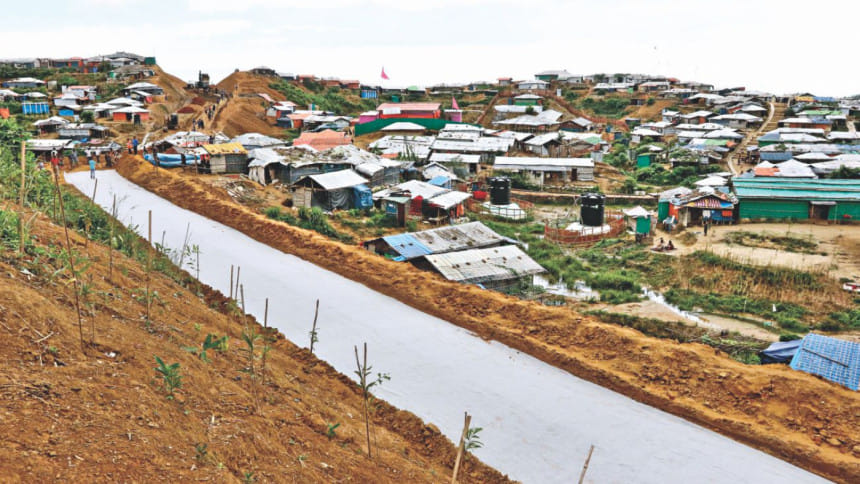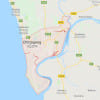4,300 acres of hills, forests razed for Rohingya shelters

A total of 4,300 acres of hills and forests were razed down to make temporary shelters, facilities and cooking fuel in Ukhia and Teknaf of Cox's Bazar, threatening the biodiversity of the three ecologically-critical areas of the country, according to a latest report.
A joint study, titled "Environmental Impact of Rohingya influx" conducted by the United Nations Development Programme (UNDP) and UN Women, with support from Ministry of Environment, Forests and Climate Change, was unveiled yesterday at a hotel in the capital.
The report highlighted the critical impact of one of the world's biggest influxes -- of above 700,000 Rohingyas -- on the environment of Cox's Bazar, and recommended measures for mitigation, restoration and conservation.
The report said since the influx began in August 2017, coupled with the host community and Rohingyas from past influxes, the crisis-affected population is now almost 1.5 million in Cox's Bazar. It has created massive pressure on the already-dilapidated environment of Cox's Bazar, which still remains significantly underfunded.
The report identified the key cause for the encroachment as the fact that nearly 6,800 tonnes of fuel wood is collected each month, and each Rohingya family uses on an average 60 bamboo culms to construct their temporary shelters.
It said due to the indiscriminate hill-cutting to provide shelters to the Rohingyas, the terrain of the hills has lost their natural setting, causing a potential risk of landslides.
The report also found thousands of shallow tube wells as threats to aquifers. Air pollution has risen due to increased vehicular traffic and smoke from firewood burned by refuges, and due to a lack of recycling, polythene bags and plastic bottles are piling up in various parts of the area, it said.
Sudipto Mukerjee, country director of UNDP Bangladesh, said the Rohingya influx has been putting immense pressure on scarce natural resources in the area, resulting in degraded natural forests, barren hills and an emerging water crisis.
"This situation demands immediate investment in restoring the environment and ecosystem, as part of the Bangladesh government's response in Cox's Bazar."
Farah Kabir, country director of ActionAid Bangladesh, said the government should focus on alternative fuel use to address the fuel crisis. She also suggested rainwater harvesting to address the water crisis in the area.
"I urge the government to stop distributing kerosene at individual levels, as it may cause fire to break out at any time in the highly-dense camp," she said, adding that the government can apply for the Green Climate Fund to address the issue.
Mohammad Mohsin, additional secretary of Ministry of Disaster Management and Relief, said only addressing the ecological and environmental problems will not bring any sustainable result. Rather, it requires a holistic approach by all stakeholders to address the Rohingya issue.
Mohammaed Shafiul Alam Chowdhury, chief conservator of forests, said immediate action should be taken to reduce pressure on forests by providing alternative fuel.
Anisul Islam Mahmud, minister for environment, forests and climate change, said the problem is not a simple one that can easily be managed.
"We tried rice husk and LPG as alternative fuel, but those did not get much success. Open kitchens or block kitchens can be a solution to the fuel problem," he added.
The minister said the Rohingya issue is not going to be over in the next few years, so a well-thought and well-managed approach is needed to address the fuel crisis.
Anisul, however, said the water scarcity problem is the biggest issue there, as there will be no water there after a certain time.
He questioned whether donor agencies will come to restore the environment in Bangladesh after the Rohingyas leave for their homeland.

 For all latest news, follow The Daily Star's Google News channel.
For all latest news, follow The Daily Star's Google News channel. 








Comments